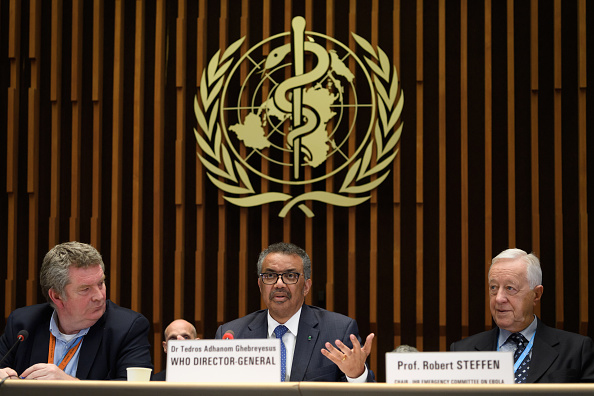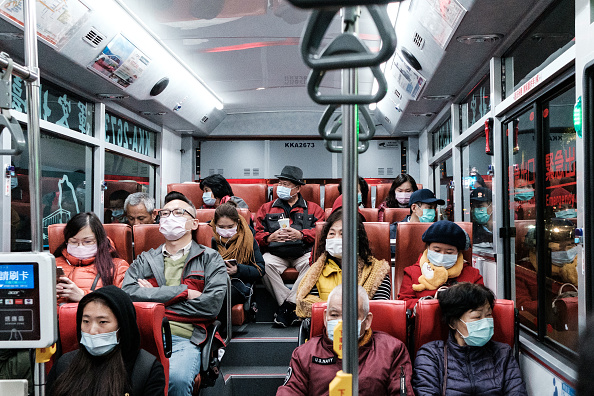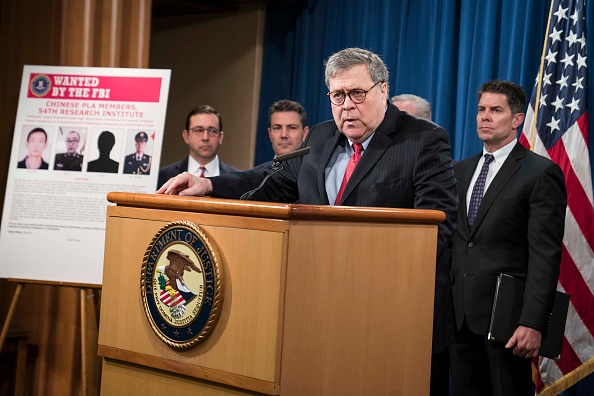
 Asserting Control
Asserting ControlChina saw its highest spike in confirmed coronavirus cases this week after medical authorities changed the criteria for diagnosing the novel outbreak, officially designated as Covid-19 by the World Health Organization. There were over 5,000 new confirmed cases in China on Friday, raising the total confirmed cases worldwide to over 64,000. Chinese doctors can now diagnose the respiratory disease using CT scans of patients' lungs, allowing doctors to get results faster and with less margin for error. Previously, diagnoses could only be made using specialized testing kits, which take multiple days to finalize results and has a higher probability for false negatives.
The sudden increase "does not represent a significant change in the trajectory of the outbreak," according to Dr. Michael Ryan, the World Health Organization's emergency response chief, as a multi-national team of WHO experts arrived in China to assist with Covid-19 response this week. Chinese vaccine producers are also on the search for a new vaccine, with the latest being a call for blood plasma from those who have recovered from Covid-19. Antibodies in the plasma have been found to reduce inflammation in coronavirus patients within 12-24 hours.
China also ousted top government officials in Wuhan and Hubei province over mismanagement during the early stages of the health crisis, in a move that experts say was intended to appease angry citizens and assert greater control of the situation. "Due to the inept initial response at varying levels of the Chinese government, precious time was lost to contain the virus before infections grew exponentially," according to Minxin Pei in his latest China-US Focus. As the crisis continues, the global economic outlook for China continues to fall, with HSBC reducing its first-quarter forecast for China's growth to 4.1% from 5.8% this week.
 Joining the fight
Joining the fightWhile China grapples with the coronavirus outbreak, its effects are also being felt across the Taiwan strait and beyond. In an exception to its usual position, China allowed Taiwan to participate in this week's WHO conference covering the pandemic. Taiwan has been blocked from participating in most international conferences in recent years under increasing pressure from Beijing since the island's pro-independence party has taken power. Experts warn that Taiwan's exclusion from international forums would pose a major risk to how the outbreak is contained. "If there is no way to get timely information about the outbreak as well as no way to participate completely in international health bodies, that could pose a high-level risk," foreign ministry spokeswoman Joanna Ou said.
Earlier this month, the UN's International Civil Aviation Organization (ICAO) also came under fire for blocking Twitter users that criticized it for barring Taipei from its membership. ICAO plays a major role in determining regulations for international air transport, and exclusion from the aviation agency in particular would block Taiwan from logistical preparations as the virus unfolds. Currently, there are 18 confirmed cases on the island.
 Trading Accusations
Trading AccusationsUS federal prosecutors charged Huawei with a "pattern of racketeering activity" and for conspiring to steal trade secrets from six American tech companies this Thursday, a year after the Department of Justice charged the Chinese telecoms company with evading US sanctions. Huawei is being accused of attempting to steal various pieces of intellectual property, including source codes and manuals on wireless technology, as well as offering bonuses to its employees for acquiring confidential trade information. Huawei denied the claims in an email statement, calling them an "attempt to irrevocably damage Huawei's reputation and its business for reasons related to competition rather than law enforcement." The accusation adds to a long list of US charges against Huawei in this specific case, which first began in August 2018.
In another row over intellectual property theft, the US government indicted four members of China's People's Liberation Army over the 2017 hacking of Equifax, one of the largest US credit reporting agencies. Federal prosecutors say the four men were involved in a hacking campaign that stole trade secrets and personal data of about 145 million Americans-- almost half the population of the United States, including names, birth dates, and Social Security numbers. The data could also be used to target US officials under financial stress who might be susceptible to bribery or blackmail, according to Attorney General William Barr. China sharply rejected the claims, calling them "without a basis in fact."
Prepared by China-US Focus editorial teams in Hong Kong and New York, this weekly newsletter offers you snap shots of latest trends and developments emerging from China every week, while adding a dose of historical perspective.
- 2020-02-08 A Novel Outbreak
- 2020-01-31 Global Health Emergency Declared
- 2020-01-24 Celebrations Grounded
- 2020-01-17 Signed, Sealed, Delivered
- 2020-01-10 Ink the Deal
- 2019-12-20 A Level Playing Field
- 2019-12-13 It’s a (Limited) Deal!
- 2019-12-06 An Arbitrary Deadline
- 2019-11-22 On or Off Again?
- 2019-11-15 Counterweight Critique
- 2019-11-08 "I haven't agreed to anything"
- 2019-11-01 Don’t Hold Your Breath
- 2019-10-25 Weaponizing Diplomacy
- 2019-10-18 Economic Shudders
- 2019-10-11 A “Big Day of Negotiations”
- 2019-10-04 Birthday Celebrations
- 2019-09-28 A World Split in Two?
- 2019-09-20 Another Round